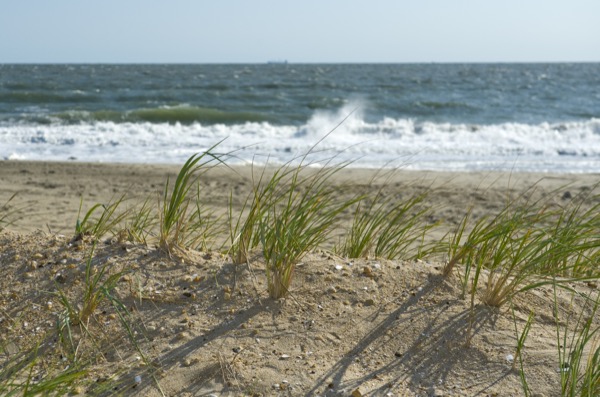
Climate Framework
UD data, projects inform new Delaware Climate Framework
9:11 a.m., March 4, 2015--Nancy Targett, dean of the University of Delaware College of Earth, Ocean, and Environment (CEOE) and director of Delaware Sea Grant (DESG), joined Gov. Jack Markell and other environmental partners at the American Birding Association Headquarters in Delaware City on Monday, March 3, to highlight Delaware’s historic success in preparing the state for emerging climate impacts and to announce a new Climate Framework for Delaware.
The framework summarizes work completed under Markell’s Executive Order 41, signed in September 2013, in addressing climate impacts and includes recommendations that outline Delaware’s future direction for climate action. It provides strategies to reduce greenhouse gas emissions that contribute to climate change; increase resilience to climate impacts; and avoid and minimize flood risks due to sea level rise.
Campus Stories
From graduates, faculty
Doctoral hooding
Targett, Markell, Delaware Department of Natural Resources and Environmental Control Secretary David Small, Transportation Secretary Jennifer Cohan, Agriculture Secretary Ed Kee, Delaware Director of The Nature Conservancy Richie Jones, Lewes Mayor Ted Becker and other partners spoke to underscore the causes and consequences of climate change and the work underway to reduce climate impacts.
“Climate change is the greatest environmental challenge we face. By taking strategic actions that reduce greenhouse gas emissions and prepare Delaware to be more resilient, we are ensuring public safety, improving public health, supporting new jobs, growing the economy and conserving our natural resources,” said Markell.
“Through our research and monitoring efforts, we know that Delaware temperatures have increased over the past century. Projections show that this trend will continue. Summer heat indices are projected to increase, and so are average annual precipitation values and rainfall extremes,” said Targett. “Now is the time to improve our resilience to these changes, to do what we can to mitigate impacts to public health, water resources, ecosystems, agriculture, and infrastructure, and ultimately to our economy.”
In her remarks, Targett highlighted UD’s role in planning for and adapting to climate change. “We at UD, together with our partners, are working from an education and research platform, to be part of the solution,” she said.
Targett referenced several CEOE initiatives, including:
- Efforts of the Office of the State Climatologist, housed within CEOE, under the direction of Dan Leathers;
- Tools like the Delaware Environmental Observing System and Coastal Flood Monitoring System;
- Use of the Lewes wind turbine to inform wind energy policy, support the renewable energy industry, and provide power;
- Pioneering research and innovation in electric vehicle technology and offshore wind;
- Development of biofuels and salt tolerant crops;
- A bi-state collaboration to advance climate education and literacy (MADE CLEAR); and
- Delaware Sea Grant’s role in supporting community resiliency and climate adaptation.
She also mentioned a recently released report from the Union of Concerned Scientists that recognized the city of Lewes — home to UD’s Hugh R. Sharp Campus — as a leader in adaptation and preparedness, citing partnerships with UD.
“Lewes’ first core value recognizes this community’s unique relationship with the sea,” said Becker, thanking Delaware Sea Grant and DNREC for their assistance. “That historic connection has helped to foster the realization that we must make adaptations to many aspects of climate change and hazard mitigation, as they impact Lewes. As a result, not only have we made changes to our city code and regulations, but we have also undertaken an ongoing program to educate and engage our residents as we prepare for the future.”
“Data from recent surveys co-funded by DNREC and Delaware Sea Grant tell us that Delawareans are concerned and want action,” said Targett. “If we continue the momentum of our combined efforts, use the Governor’s Climate Framework to steer our efforts, and make our decisions on science-based information that is derived from innovative research efforts, Delaware will make its communities, businesses, and natural resources more resilient to climate change and that is good for all of us.”
Framework recommendations are available for public comment through May 30 via the Delaware Department of Natural Resources and Environmental Control. For more information, visit the Climate Framework website.








